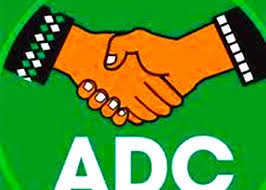The Progressive School Model adopted by Edo State Universal Basic Education Board (Edo SUBEB) under the EdoBEST programme is strategic to addressing learning poverty in Nigeria’s rural areas, Ozavize Salami, executive chairman, Edo SUBEB has said.
She made the remark while participating at a panel session during the recently concluded two-day South-South Human Capital Development (HCD) Regional Conference (Edo 2023) in Benin City.
Speaking on measures taken by Governor Godwin Obaseki to ensure that children in the rural areas get the same quality of education as their counterparts in more developed areas, Salami noted that “in some of the rural communities there are challenges with educating children. Migrant children who are from families that are nomadic and therefore always on the move, need a special arrangement.
“We also realized that even when you have schools located in rural areas, manning those schools and sending teachers there was always a problem. Additionally, we had to grapple with the out-of-school children phenomena in some cases.
In order to address the challenges, “We developed the Progressive School Model to address the challenge peculiar to rural environments. We had to design a model that allowed us do multi-grade teaching in such schools and communities.”
The Edo SUBEB chairman explained that the key features of the model include: recruiting teachers located in the communities who chose to stay; relocating those from outside, training and equipping them with the same technology being used by EdoBEST teachers in more cosmopolitan areas and ensuring that teaching and learning are going on throughout the academic calendar.
“Because of the model we have adopted, children in the rural areas are receiving the same lessons as their counterparts in cities. We actually can tell how the schools are being managed and how the children are learning in those remote areas because of the kind of technology we are using,” Salami said.
Nigeria has grappled with learning poverty and challenges with out-of-school children over the years. Edo State has been at the forefront of basic education reform. Its signature basic education intervention programme has revolutionised teaching and learning in primary and junior secondary schools in over 1,000 state-owned basic schools.
Under EdoBEST, policy makers have developed measures to get quality education to vulnerable communities who have traditionally eluded the radar of successive governments. Data released by the National Bureau of Statistics indicate that Edo has the least number of out-of-school children for any state in Nigeria. The Edo State Government adopted EdoBEST as a measure to improve the quality of human capital in the state.
The two-day South-South Human Capital Development (HCD) Regional Conference (Edo 2023) was designed in recognition that human capital development plays a critical role in addressing poverty while ensuring participatory and sustainable economic growth.
The panel provided an opportunity for the six states of the South-South region to compare notes and chart a course for progress. Also, on the panel were the Commissioner of Education, Bayelsa State, Hon. Gentle Emelah; Commissioner of Education, Edo State, Dr. Joan Osa Oviawe, and representatives of the Delta, Rivers, Akwa Ibom and Cross Rivers states.


